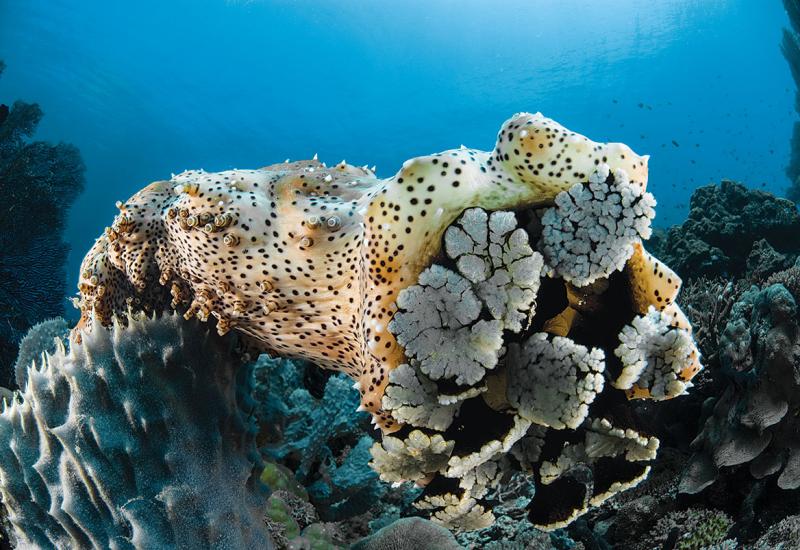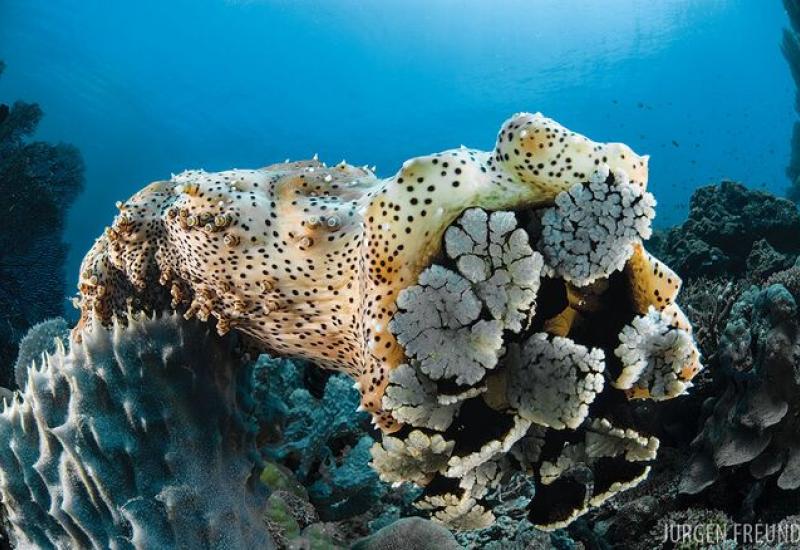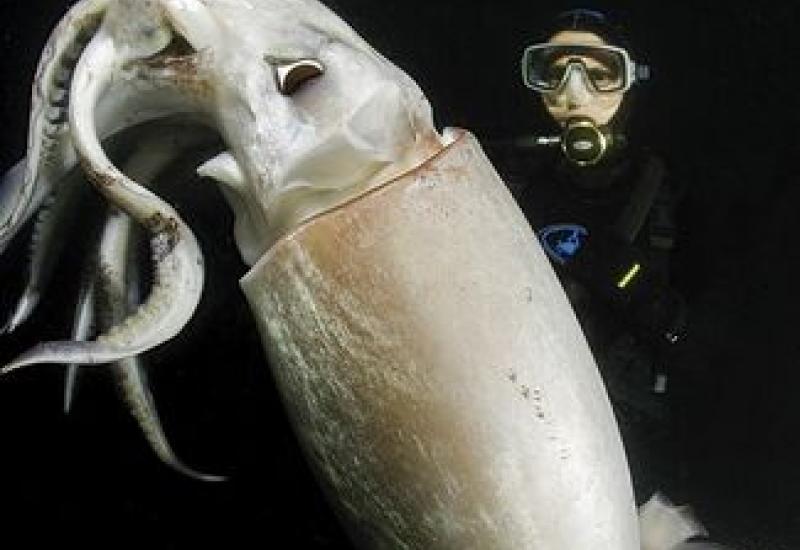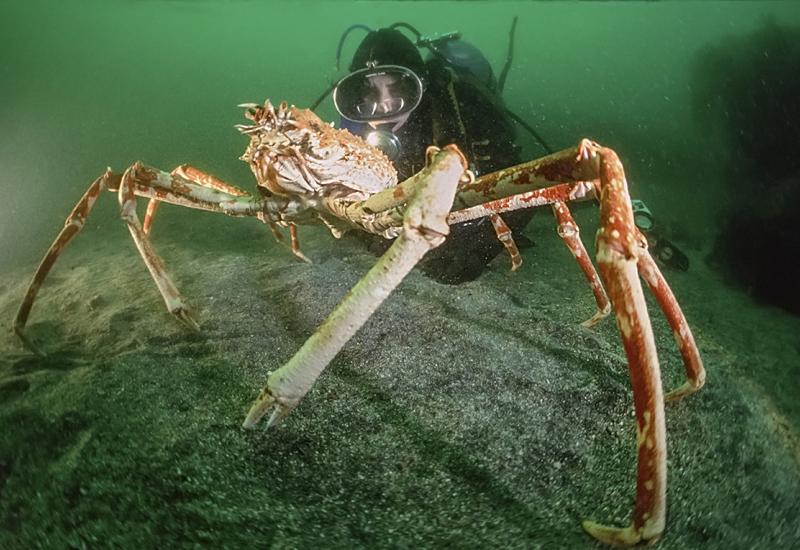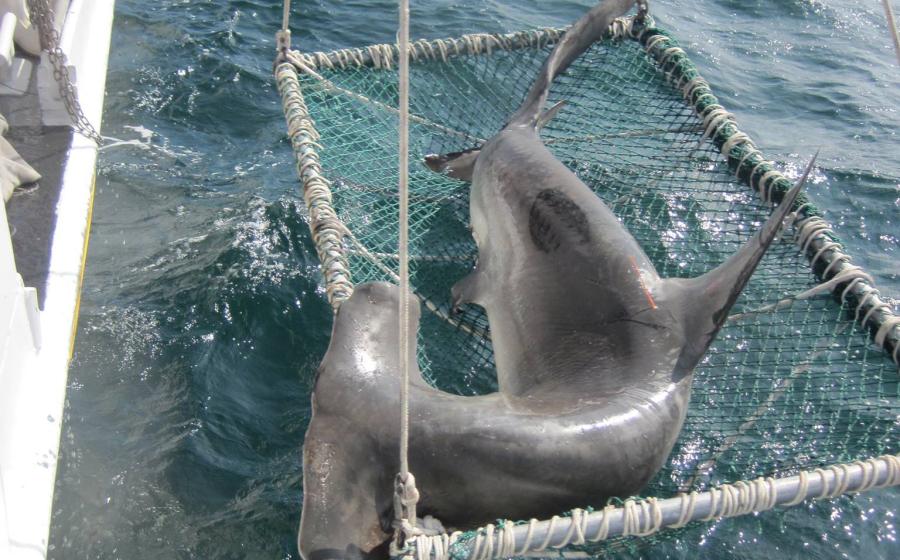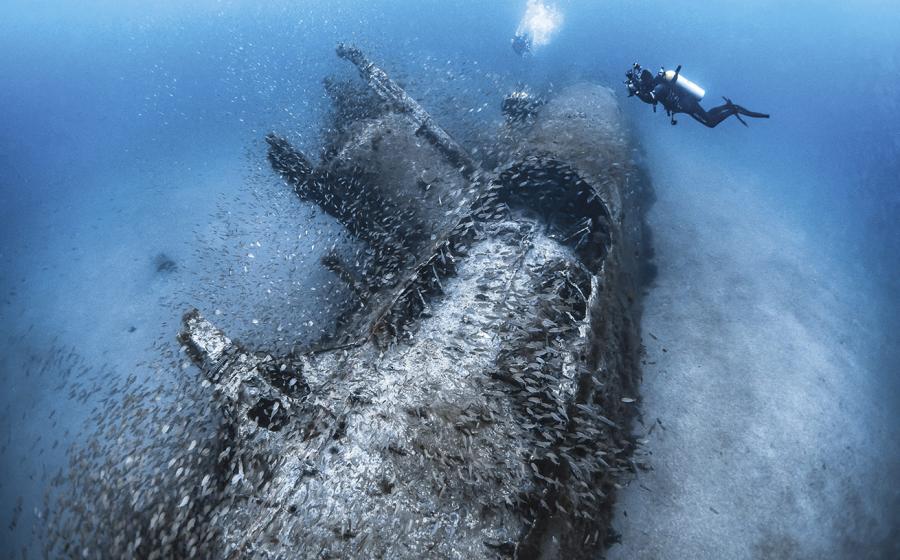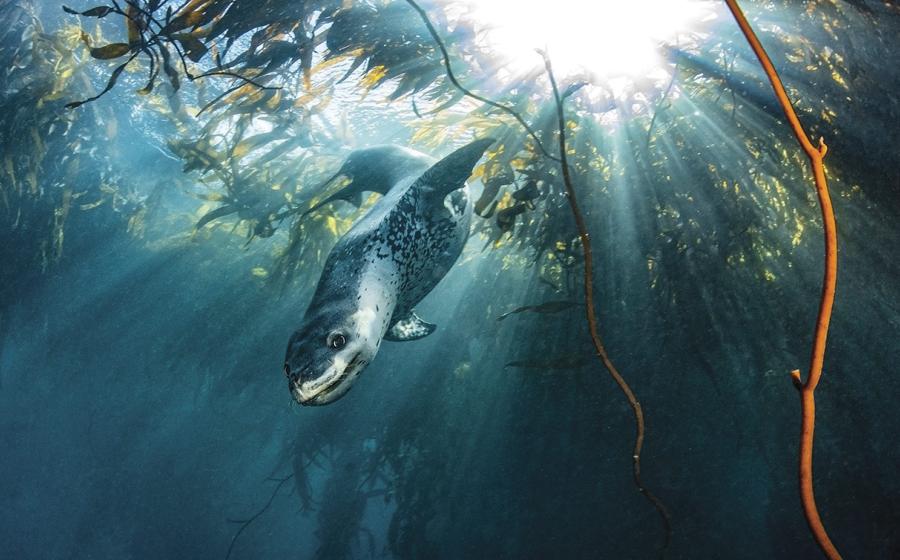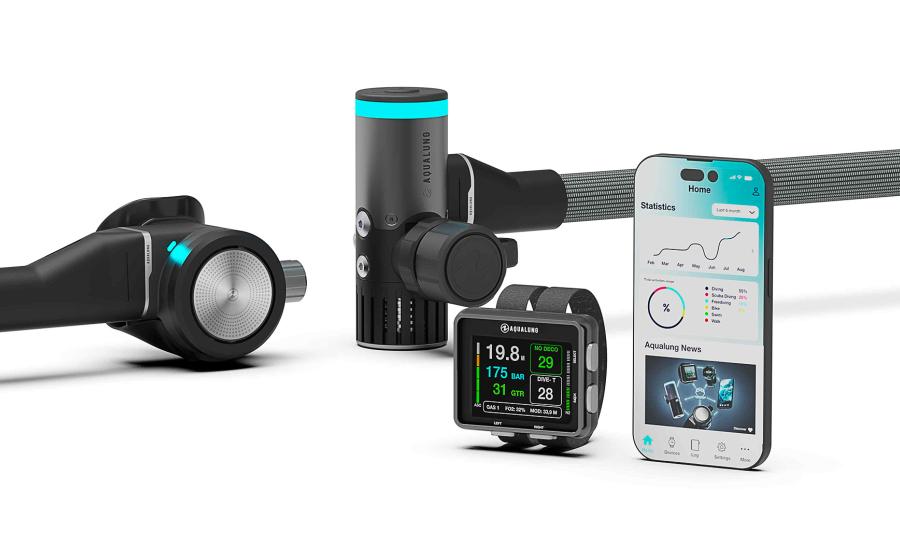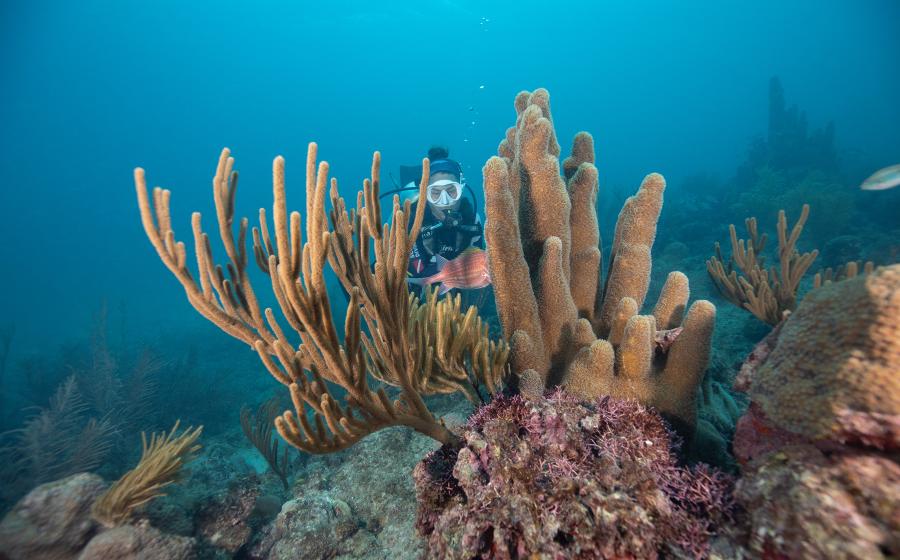6 Out-of-the-Ordinary Professional Scuba Diving Jobs
Professional diving isn't all about training Open Water students, guiding dives in a tropical paradise or welding something or other on an oil rig. Sometimes, professional divers have tasks that are a little more out of the ordinary. Here are six of the strangest professional scuba diving jobs from diving in poop to training astronauts.
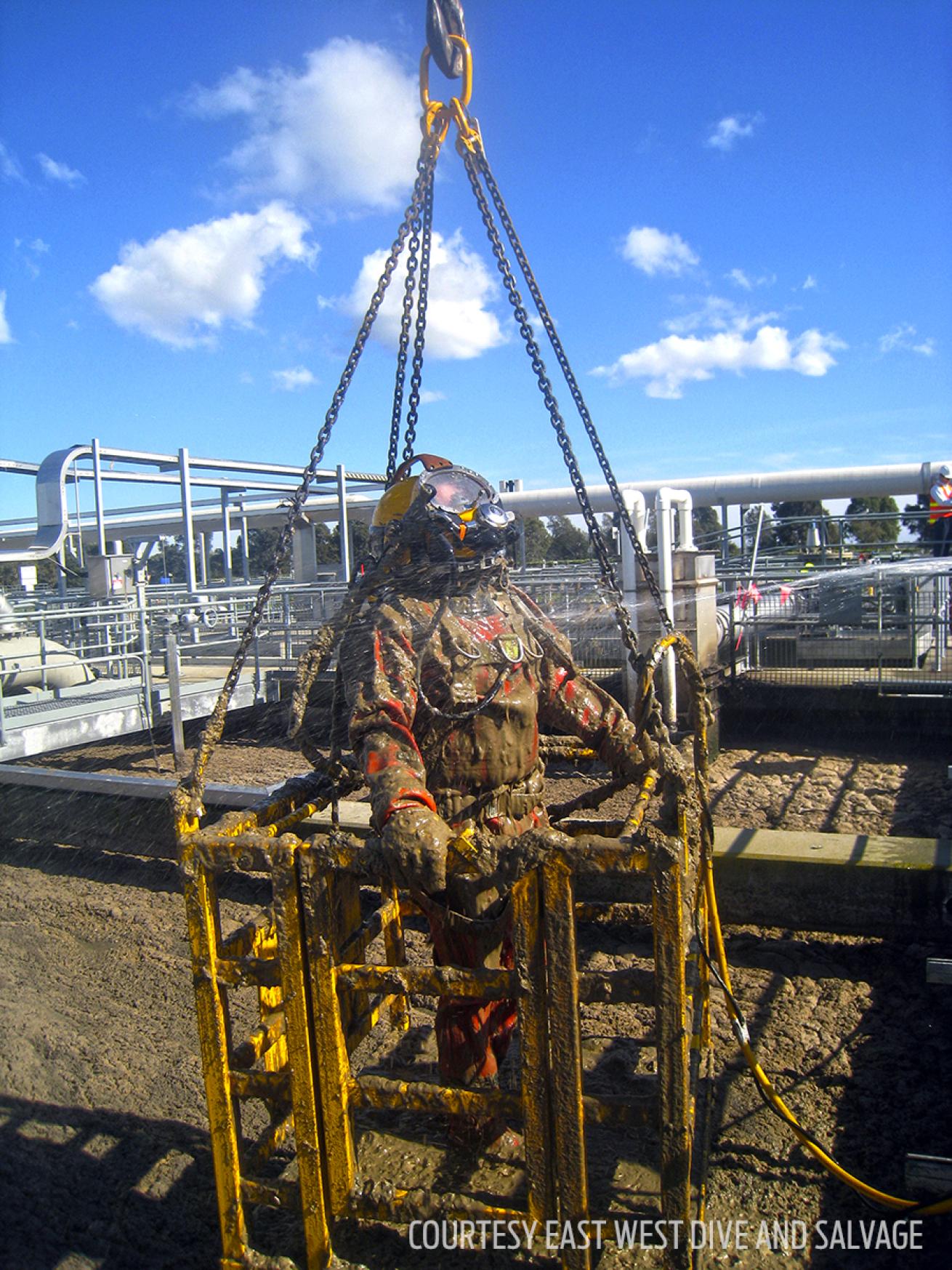
Courtesy East West Dive and SalvageA contamination diver for East West Dive and Salvage
Poop Divers
For most people, the question, “Would you dive in a pond filled with poop?” is part of a truth-or-dare game. But for contamination diver Brendan Walsh, it’s how he begins most days. He’s the company director for East West Dive and Salvage, based in Melbourne, Australia, and it’s his job to dive into untreated sewage ponds to repair the machinery within.
Of his first time, he says, “Absolutely, I was scared the suit was going to leak.” It didn’t then, nor on the thousands of subsequent dives. Still, Walsh must follow precautions, including getting every vaccination available.
“It’s called a hamburger when you get the whole lot — every injection you can think of. Because everybody who has any disease is also using a toilet.”
Even still, Walsh suits up without complaint.
He adds, “It’s no different than your first night dive or your first deep dive. You have a bit of apprehension at first, and then you start and it’s just another dive.” — By Brooke Morton

Old Golf ImagesA diver exits the water with a treasure trove of lost golf balls.
Golf Ball Divers
Challenging golf-course water hazards are the stuff of legend — for example, the infamous 17th hole of Florida’s TPC Sawgrass where the world’s best golfers often come to grief. A golfer’s misfortune, however, can be a diver’s claim to fortune.
Diving to retrieve errant golf balls that end up in various water hazards — mostly lakes, ponds and creeks — seems a bit, well, crazy. Golf-ball divers often work in zero visibility and subzero temperatures. The stagnant silty stews are often populated by leeches, water snakes, alligators and/or crocodiles.
What motivates them? It can be lucrative — “white gold,” as one golfball diver put it. It’s estimated that 300 million golf balls are lost each year in the United States alone. Finding and reselling them is a $200-million-a-year industry in the U.S., according to some estimates, and some golf-ball divers earn up to $150,000 a year.
Nuclear Reactor Divers
We’re conditioned to raise an eyebrow and quickly say, “no thanks,” any time nuclear reactors are mentioned. But Kyra Richter, a nuclear-dive-program supervisor, says that her job is actually very safe. So you won’t be contaminated or turned into a super hero.
“Nuclear diving is a mix of inland and industrial diving, which means we work in rivers, lakes and oceans, and in man-made intake tunnels, condensers, pools, tanks and other structures inside the plant,” Richter told Scuba Diving magazine. “We work in open or closed systems, clean or dirty water, which is contaminated water that contains radioactive isotopes.”
Because reactors are placed in or around water for cooling and driving turbines, divers are needed to perform any maintenance necessary. So if you’re able to get over the fear of the word "nuclear," you can find a pretty nice job.
Circus Safety Divers
Cirque du Soleil’s "O" is an overwhelming water-themed display. If you’ve ever seen this Las Vegas-based show, you may not realized that there’s a team of scuba divers underwater help making it all happen. And when these divers aren’t following a script, making sure the performers get a second stage when they need it, they’re helping train the performers so they’re competent underwater.
Hollywood Stunt Divers
Plenty of actors get certified to star in movies that involve underwater shots — ever heard of Jessica Alba, Tom Hanks or Sean Connery? — but stunt divers are still needed.
Just ask Szilvia Gogh, a PADI Course Director who has appeared in plenty of movies, commercials, music videos and more.
“My first job was in a bikini in the Pacific Ocean in February. Not too many women volunteered,” says Gogh. “They wanted an army of us in the sea for the ad they were filming. In the end, it was only one lifeguard and me. My reputation started there.”
And safety divers are also utilized when movie shoots head under the sea, giving the average Scuba Steve the chance to get a Hollywood credit.
Astronaut Trainers
Before astronauts blast off into space, they become accustomed to working in zero gravity underwater. At NASA’s Neutral Buoyancy Lab in Houston, safety divers look on as the astronauts-in-training perform various task in a gigantic pool that features a model of the International Space Station.

